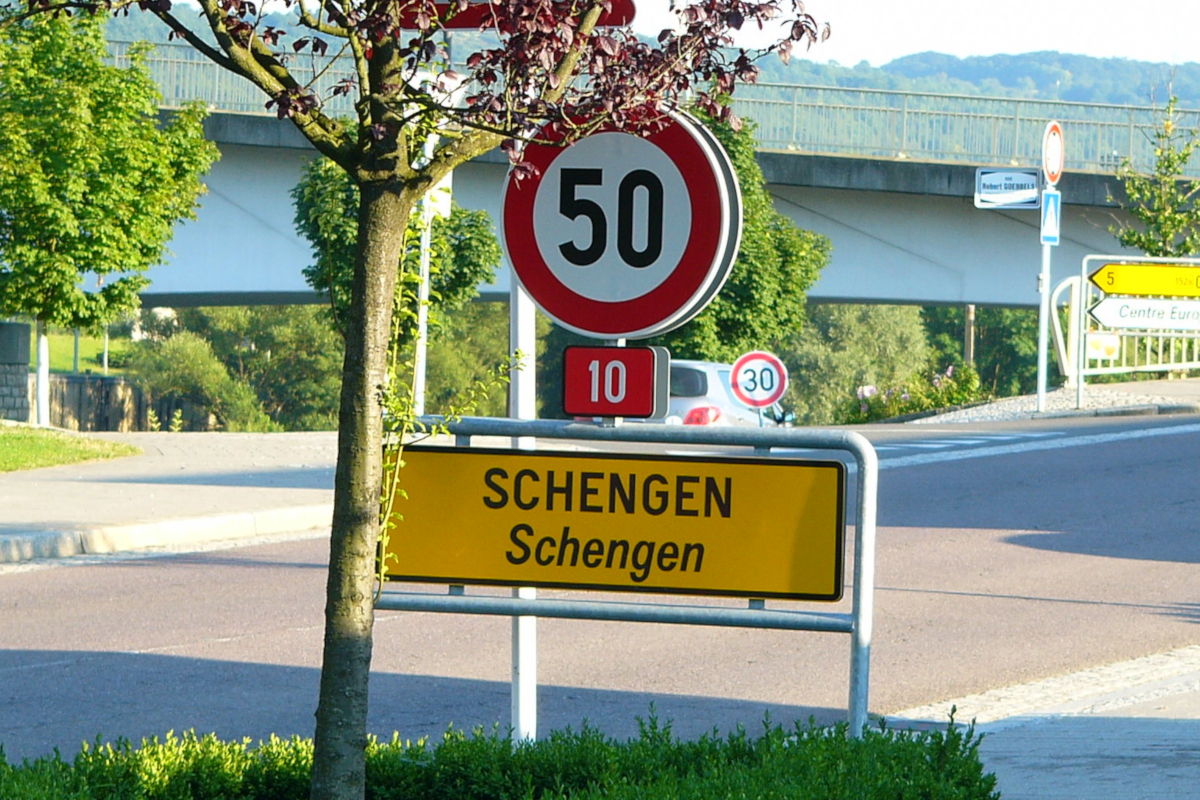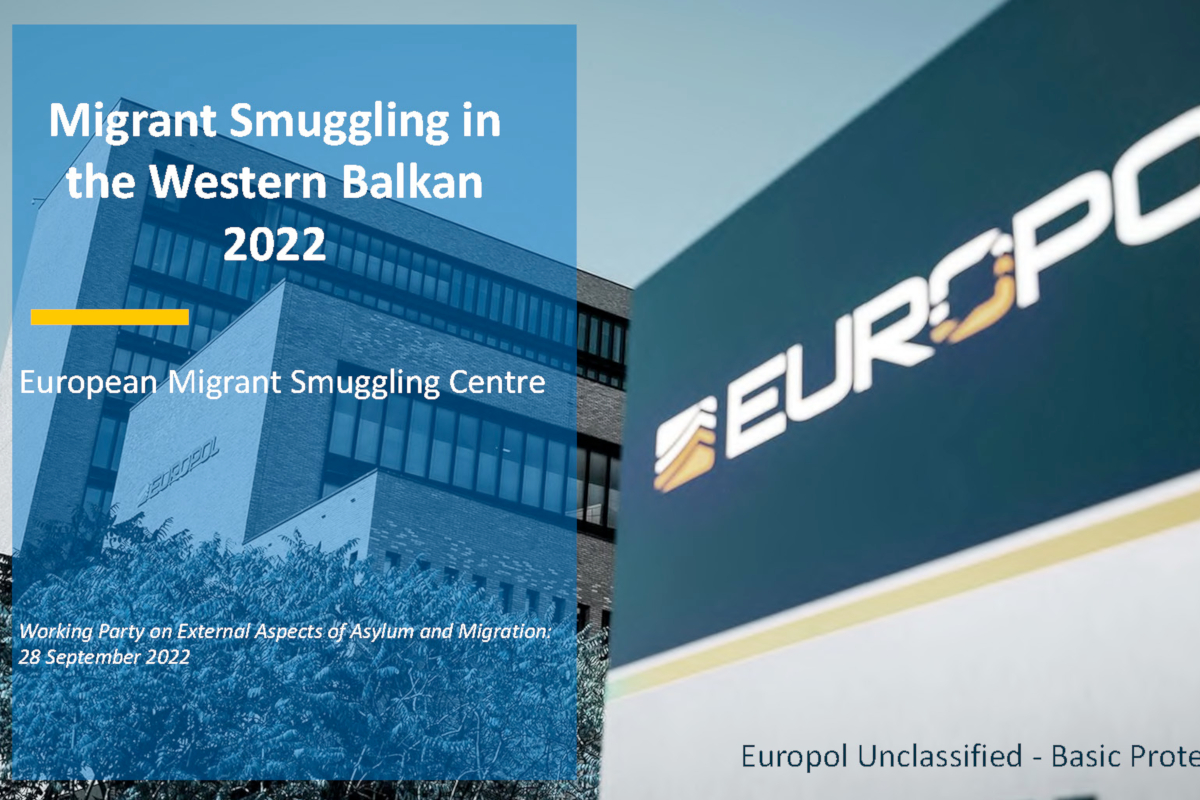EU gears up for renewed crackdown on migrant smuggling
Topic
Country/Region
05 October 2023
At the Schengen Council meeting on 19 October, ministers will discuss how to ramp up the EU's repressive measures against migrant smuggling and decide on "actions, commitments and sustainable solutions." A draft paper from the Spanish Council Presidency gives an indication of the plans that are in the works.
Support our work: become a Friend of Statewatch from as little as £1/€1 per month.

Image: dm1795, CC BY-NC-ND 2.0
The paper (pdf) was circulated to member state delegations in the Council on 28 September, and declares: "Crimes involving smuggling or exploitation of persons (including children), such as migrant smuggling, different forms of trafficking in human beings and child sexual exploitation remain at critically high threat levels, having an increasingly severe impact on vulnerable persons."
While migration policy experts and even EU agencies themselves have noted that stricter border controls tend to lead to smugglers charging more money for access to increasingly dangerous routes, the Spanish Presidency highlights other factors:
"...the market for migrant smuggling to and within the EU is propelled by the emergence and deepening of crises, most notably economic recessions, environmental emergencies caused by climate change, and ongoing conflicts, along with demographic pressures in many countries of origin. The dramatic developments over the recent months in the Mediterranean and in the countries on the other side of the Sea will only confirm these trends."
The Presidency's proposals come under four headings:
- Developing shared situational awareness
This includes proposals for increased information sharing, including between EU military missions and law enforcement agencies, joint analysis by EU agencies, and for Europol and Frontex to "enhance their role in research and innovation to identify opportunities for developing new capacities for detecting, preventing and combating migrant smuggling."
- Reinforcing the EU legal framework on migrant smuggling
The Presidency notes the Commission's intention to "urgently update the EU legal framework on migrant smuggling," and argues that:
"...migrant smuggling increasingly appears to be a highly profitable business with a low risk of detection and punishment for criminals. There are questions as to whether the response provided by the current legal framework is still adapted to current and developing challenges, in a context where smugglers are taking ever-increasing risks, are highly adaptable and make frequent use of digital services tools."
The primary piece of legislation in this area, the Facilitation Directive, has been heavily criticised by civil society organisations for failing to prevent the criminalisation of solidarity and humanitarian activity.
- Strengthening and integrating European operational cooperation
The Presidency's paper calls for more joint investigations, more support from EU agencies for national law enforcement bodies, the swift implementation of recent police legislation, and for cooperation between "Frontex, the European Union Agency for Asylum (EUAA), INTERPOL and European Union Naval Force Mediterranean (EUNAVFORMED) Operation IRINI" to be "further strengthened within the framework of the Information Clearing House."
National border surveillance and intelligence analysis systems should also be fed increasing amounts of data and information, and:
"The quality of border checks, particularly at vulnerable and high-risk entry points, should be significantly enhanced, to ensure systematic checks of EU information systems at the external borders."
The importance of inancial investigations is highlighted in the paper, which also calls for looking at "the links between migrant smuggling and other crime areas."
Given recent revelations about industry influence on the EU's proposed anti-encryption legislation - as well as demands from Europol for wholesale access to data for all crime areas - a topic in the paper that is likely to be of particular interest is the "digitalisation of migrant smuggling."
The document notes:
"Increasingly, the fight against organised migrant smuggling requires the ability of law enforcement agencies to have access to data, including electronic information and evidence located domestically and abroad, to decrypt them in support of national investigations, when necessary, and to retain them for the time required to conduct an investigation and set up a fair trial. In this light, the recent adoption and entry into effect of the e-evidence package and the future entry into operation of the Second Additional Protocol of the Cybercrime Convention will contribute to efficient investigation and prosecution of crimes."
- External policy dimensions
The final heading in the document proposes more border externalisation, noting the recent action plans on the Western Balkans and the Mediterranean; the need to implement "Anti-Smuggling Operational Partnerships" with Tunisia, Niger, Morocco and the Western Balkans, to make better use of the EU Immigration Liaison Officers network, and to step up cooperation with military (Common Security and Defence Policy, CSDP) missions.
Documentation
- October 2023 Schengen Council - Fighting cross-border crime, especially migrant smuggling - Draft Presidency paper (Council doc. 13403/23, LIMITE, 28 September 2023, pdf)
Our work is only possible with your support.
Become a Friend of Statewatch from as little as £1/€1 per month.
Further reading

Migrant smuggling in the Western Balkans: Europol, Frontex and EU Asylum Agency presentations
On 28 September the Council of the EU's Working Party on External Aspects of Asylum and Migration (EMWP) discussed migrant smuggling in the Western Balkans. Representatives of Europol, Frontex and the EU Asylum Agency were there to give presentations, which we are publishing here.

EU: Joint Europol-Frontex report on "digitalisation of migrant smuggling"
Europol and Frontex have produced a joint report on the "digitalisation of migrant smuggling", intended to provide state officials with in the EU and Western Balkans "with a comprehensive intelligence picture on the use of digital tools and services' [sic] in migrant smuggling and related document fraud, in order to raise awareness, consolidate existing knowledge and enforce opportunities to take appropriate measures to tackle emerging threats."

EU: Short-sighted Commission consultation on plan against migrant smuggling
The European Commission recently launched a consultation on the EU action plan against migrant smuggling (2021-2025). However, its strategy for the new plan did not involve a thorough evaluation of actions to date, and its questions for contributors "are clearly geared towards legitimising a pre-determined set of actions". Statewatch's submission called for public debate about the root causes of migrant smuggling and the impact, legitimacy and effectiveness of EU action taken to prevent and punish it.
Spotted an error? If you've spotted a problem with this page, just click once to let us know.

